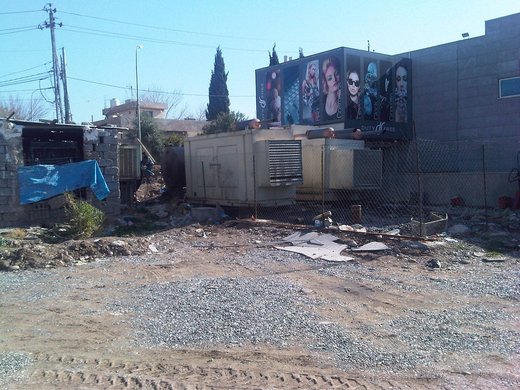Have you ever installed a line at the power plant of the district?
Two Turkish firms producing electricity power plants have turned into giants of the sector thanks to the rising demand in the Iraqi market

I returned from the Kurdish Administration in Iraq with issues that had never occupied my mind before. The district power plant was one among those. Have you ever heard of the concept "district power plant"? This was the first time I had and it evoked a number of thoughts. Today let me continue with my impressions beginning with the "district power plant." If you are interested, please read on.
In fact, district power plants can be seen throughout Iraq. Each district in Iraq has one. As the central government failed to provide electricity to all districts all day long, district power plants came into being. Indeed, operating a district power plan is a business branch. The private sector comes with solutions as soon as they identify potential profits.
First, you get a license from the governorate to operate a power plant. Then, you purchase a power plant. You launch it in the district as a production plant, and install lines to the houses of those who want to benefit. Just like in the photograph above. If the city line goes, the district plant is activated. You have to pay 7 dollars for an ampere of electricity. If you want more, you make a deal with the district distributor to get more and he checks how much electricity you use. Each challenge creates its own solution. In Iraq there exists private sector dynamism. District power plants work whether you like it or not.
Five years ago, city electricity was provided only one hour a day. Nowadays this period has reached up to twelve hours a day. We should be aware of how this enables the state of feeling better. A while ago I asked a United Nations psychologist in Kabul, "How do people linger on in such an environment?" He responded, "The good thing is, they do not know how life is out there and what the blessings of our civilization are." But this is not the case in Iraq in general and in the Kurdish administration in particular. They know very well what is going on in the world. They watch the Turkish TV series Kurtlar Vadisi and Ezel.
We must address the reforms initiated by Nechirvan Barzani in the Iraqi Kurdish administration and the attention raised by the reforms from this perspective. In a society where everyone knows how people live in the rest of the world, politicians must respond to the desires. We must assess with it means that the city electricity has increased from one to twelve hours in the recent period. The new shopping malls also must be evaluated from this perspective. They have made their decision to face the West. They want to pursue a prosperous life. Besides, they have the funds to achieve this thanks to the oil reserves. So we have to come up with a response to their call.
I personally believe that people on the both sides of the border suffer from three main problems. First is the poor infrastructure, particularly in terms of electricity. New power plants have improved the mains above the Iraqi average, but remain insufficient. Two Turkish firms producing electricity power plants have turned into giants of the sector thanks to the rising demand in the Iraqi market. The second challenge is the lack of skilled labor force. The long wars have left the country with a non-skilled labor force. The first step to is to enable the war-wounded labor force to adjust to normal life. The third problem is the dearth of a banking system. Turkish banks must increase their activities in the region.
The region is full of opportunities for those seeking to seize them.
This commentary was published in Radikal daily on 21.01.2011




